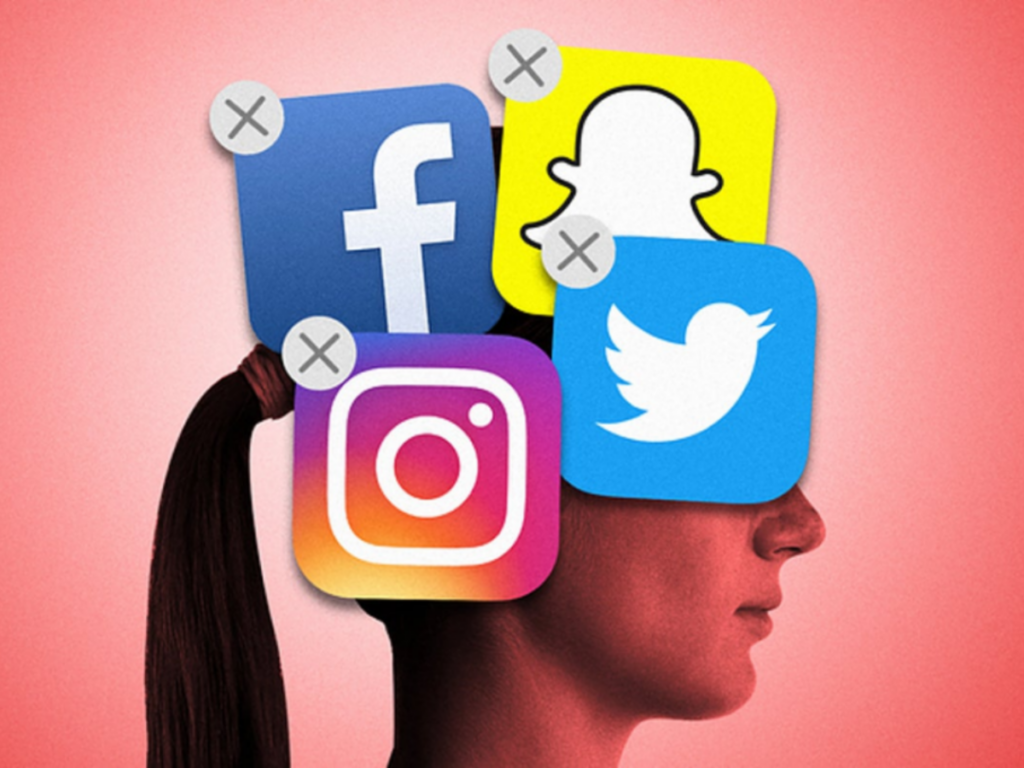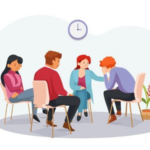
In the modern world, being digitally empowered, social media dominates one’s life. It interlinks individuals with the people in this world, is a mode of self-expression, and keeps us up-to-date with the news and latest trends. However, the negative effect on mental health by this widespread network is increasingly causing anxiety and depression, which in turn lowers one’s esteem and makes him/her experience FOMO (Fear of Missing Out).
In this blog, we are going to dig into how social media impacts mental health, what the risks are, and some of the ways to cut down on its negative impacts.
The Dark Side of Social Media: Uncovering the Hidden Risks
While these platforms – Facebook, Instagram, Twitter, and TikTok- do entertain people, there are risks when comparing everyone else’s highlight reel with one’s self. This is what might be damaging to the psyche. Here are some of the possible ways that social media negatively impact one’s mental health:
1. Social Comparison and Self-Esteem One of the largest concerns associated with social media is comparing oneself to others. A lot of people share the best parts of their life, such as the pictures of the best vacation, accomplishments, or happy moments. Continuous exposure to such curated content makes an individual feel inadequate, hence leading to poor self-esteem and body image issues. It may eventually result in feelings of being unworthy and unhappy with one’s own life.
2. Cyberbullying and Online Harassment The anonymity of the internet allows some people to commit cyberbullying and online harassment. Victims of cyberbullying can suffer various forms of mental health, which may include anxiety, depression, and social isolation. Long-term emotional scarring from cyberbullying requires early recognition and response to the signs of its existence.
3. Fear of Missing Out (FOMO) Social media is often filled with images of friends and influencers having fun, attending events, or enjoying exciting experiences. This can lead to FOMO, a psychological phenomenon where individuals feel left out or believe they are missing out on significant social events. The constant feeling of not being part of something can lead to loneliness, isolation, and depression.
4. Addiction and Time Wasting Excessive usage of social media leads to addiction, where one spends hours scrolling through his feeds without noticing the passing of time. This can interfere with the daily duties, disrupt the sleep pattern, and lead to feelings of anxiety or stress. The overstimulation from constant notifications can increase stress levels and make it hard to relax.
The Good Side of Social Media: A Double-Edged Sword
Though social media has its negative aspects, there are also positives to consider. Social media is an excellent platform for connecting and finding support and raising awareness.
1. Building Communities Social media provides a space where people with similar interests or challenges can come together. Support groups for mental health, wellness communities, and any other creative expression can have a sense of belonging to social media and provide emotional support when needed.
2. Access to mental health resources Through social media, one can easily access resources for mental health support, therapy recommendations, or even self-education about psychological conditions. In most cases, mental health organizations and professionals use the same platforms, such as Instagram and Twitter, to share helpful information on coping strategies and self-care techniques.
3. Social media: raising mental health awareness In addition, social media played a big role in destigmatizing mental health issues. They allowed people to open conversations on mental health, where individuals could seek help openly. Many influencers, celebrities, and mental health advocates have helped reduce stigma, making it more socially acceptable for people to open up and seek help when necessary.
How to Protect Your Mental Health on Social Media
Even though social media can really affect mental well-being, it’s possible to mitigate its effects with mindful usage and healthy habits. Here are a few steps toward protecting your mental health:
1. Set Boundaries Limit your time on social media to avoid feeling overwhelmed. Use features such as “Do Not Disturb” or set specific time limits for apps to reduce excessive use. Taking regular breaks from screens can help you reconnect with the real world and reduce stress.
2. Curate Your Feed: Follow accounts that motivate and bring positivity to your life. Unfollow or mute those that consistently contribute to negative feelings or stress. Surround yourself with content that aligns with your values and promotes a positive mindset.
3. Mindfulness Practice Stay present and conscious when using social media. Pay attention to how certain posts or interactions make you feel. If you notice a pattern of negative emotions, step back and assess whether it’s worth continuing to engage.
4. Treat Yourself Nicely Remember, social media is often a highlight reel and not the full picture. Most people share only their good moments, and nobody else has it that easy. Treat yourself with kindness, and avoid comparing yourself to others.
5. Seek Professional Help If social media impacts your mental health, talk to a mental health professional. Cognitive Behavioral Therapy and other therapy approaches can be helpful for managing the emotional impact of exposure to social media. A therapist can also assist you in building healthier coping strategies and improving self-esteem.
Summary
Regaining Control of Your Social Media Use Social media can have complex impacts on mental health. While it may help us connect with people and receive support, there is a possibility of social media damaging our mental well-being if we do not use it wisely. Knowing the warning signs of social media’s negative impacts and taking proactive steps to control your usage will help protect your mental health.
If you feel that you are becoming overwhelmed or stressed because of social media, it might be worth talking to a mental health professional. Dr. Neha Gupta, a highly acclaimed Neuropsychiatrist based in Pimple Saudagar, Pune, specializes in guiding people in navigating the emotional toll of digital spaces. Through therapy and guidance, she can provide you with tools to handle social media use and improve your mental well-being. Don’t hesitate to reach out and take the first step toward better mental health today.



